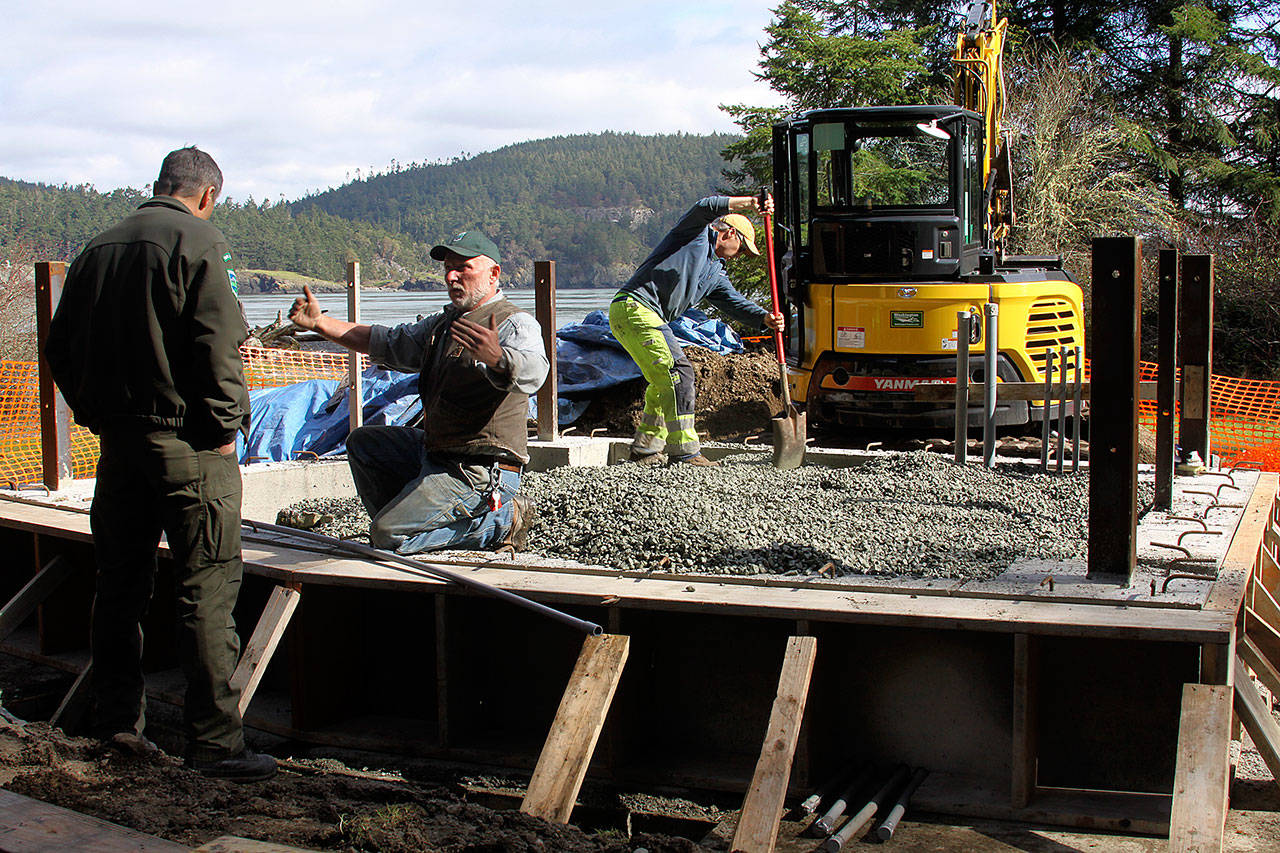Nothing gets Jack Hartt more flushed than the thought of another toilet backing up at Deception Pass State Park.
It’s a problem that dates back more than a decade at the North Whidbey state park and is happening with more regularity, particularly during the summer months when the park swells with visitors and puts a strain on sewer pumps that can’t keep up with use.
When this happens, restrooms must be closed and portable units brought in, creating an annoyance for visitors and Hartt, the park’s manager.
“It’s very frustrating,” he said.
A project is scheduled this spring to update the park’s sewer system, bringing relief to Hartt and his staff.
It’s one of several projects planned this year at Deception Pass, the most visited state park in Washington.
At least five major projects will take place there between spring and late summer.
“I’m just looking at 2017 as the year that everything happens,” Hartt said with a laugh.
“It’s common that we have a handful of smaller projects or maybe one big one. But we have a lot going on this year and we’re doing our best to keep up with all of them.”
Taking center stage currently is work that’s begun to construct a stage for the park’s amphitheater. The park’s maintenance staff is tasked with that project and was busy building the stage’s foundation this week.
The goal is for the amphitheater project to be finished by late May unless something happens that diverts those resources.
So far, $17,000 in donations has been raised through the Deception Pass Park Foundation to fund the project, which also will provide electricity to the stage to make it easier for presenters to use audio-video equipment.
The park also features a concert series there during the summer.
Other projects this spring will feature repaving roads at the Quarry Pond campground and upgrading the sewer system in the main park area south of the bridge.
New pumps and a new storage tank will be installed to make the system function properly and handle the increasing volume it has been unable to keep up with from a park that drew 2.7 million visitors in 2016, Hartt said. Ultimately, the waste connects to a system at Naval Air Station Whidbey Island, where it is treated.
Hartt can’t count the number of times the system has failed in the park, leading to restroom closures. The biggest problem occurs at the heavily-used facility near North Beach, especially during salmon season.
Hartt pointed out that 2017 is a pink salmon year, which only increases the number of users during the late summer.
“The pumps aren’t keeping up with it,” Hartt said. “It backs up into the restrooms. Then we have to close the restrooms and it’s not pleasant for visitors.
“It was designed too small in the first place or just barely at capacity. Over years, it just loses capacity, so we need to upgrade so it can handle the capacity what we now generate.”
And this would eliminate Hartt’s worst fear.
“If that system ever goes down, we have to close the park,” he said.
Two projects are scheduled for Deception Pass State Park during the late summer.
The park’s fishing pier and moorage dock at Cornet Bay are going to be replaced with new structures, providing boaters access to electrical outlets. The design will change in part to reduce human impacts on eelgrass beds, which are important for the health of juvenile salmon.
“Although it is a pink year, we’re not sure how timing is going to coordinate with the work we’re doing on the docks,” Hartt said. “It will not affect the boat launch, just the moorage. It will not affect the crabbing as much because that’s slowing down late in the summer, so it will be fully open for the early crabbing season.”
The other project involves returning Kiket Island to its its natural state — and making it an island again.
The state and the Swinomish Tribe, which co-own the island, will work together to remove the narrow causeway that connects the tiny island to Fidalgo Island.
“It was always a sandy spit,” Hartt said. “At high tide, boats could go in and out across that. It was filled in to be a road on to Kiket Island. We’re going to take out that road in partnership with the Swinomish Tribe and restore it to its natural beach state.”




